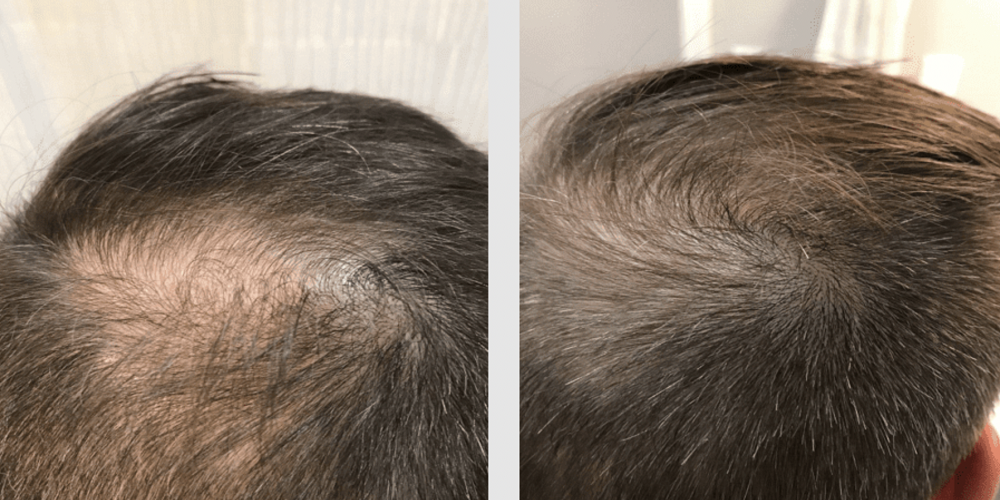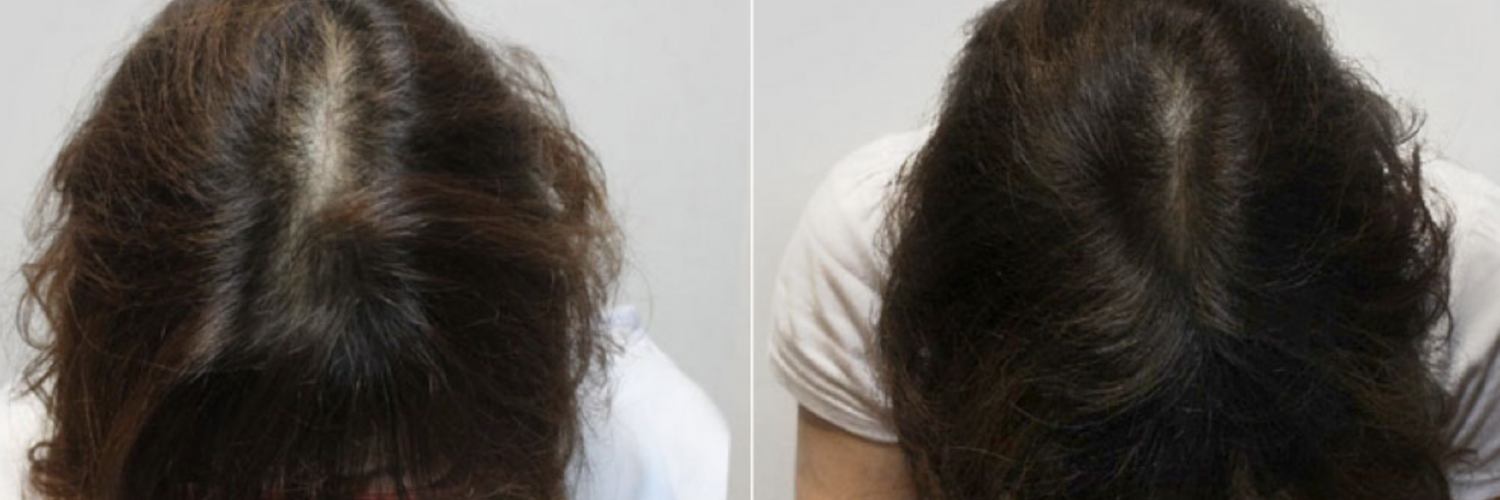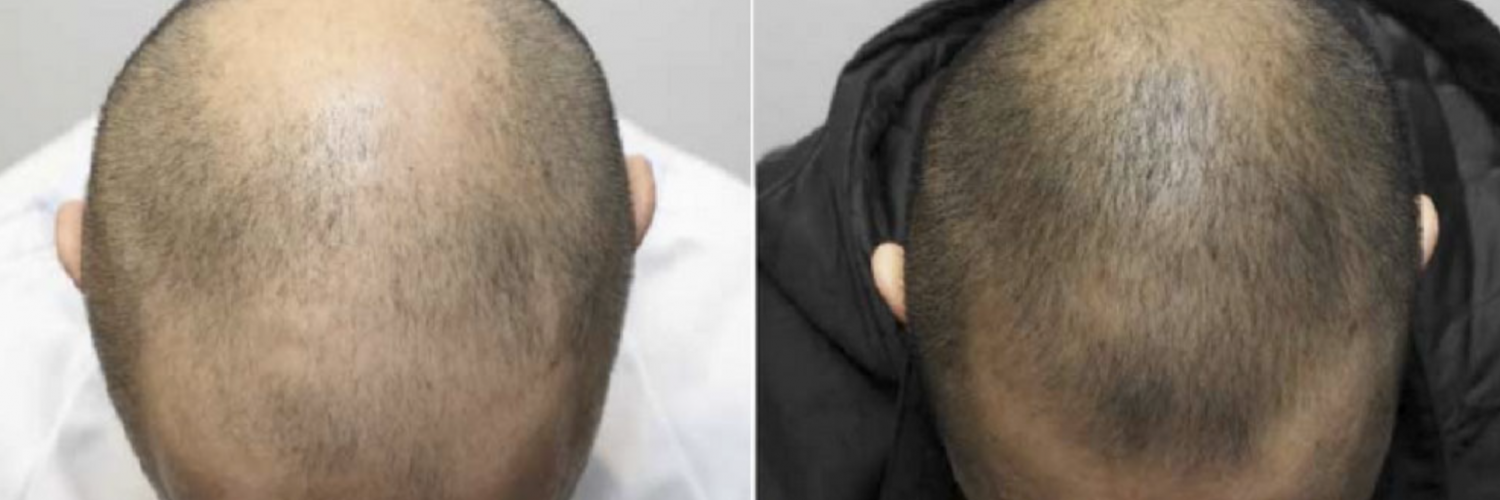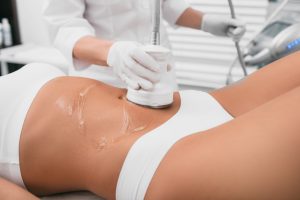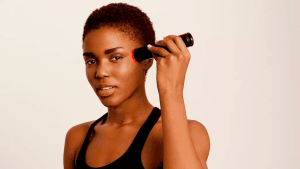Hair loss is a common condition that affects both men and women over the age of 30. It can be caused by a variety of factors, such as genetics, age, or even stress. Fortunately, hair loss treatments have evolved to provide painless, non-invasive, and effective results through innovation and technology. One such method is laser therapy.
In this article, we will discuss the science behind laser caps, before and after results, the benefits of trying laser therapy for hair growth, and safety concerns.
How do laser caps help regrow hair?
Laser caps are a popular treatment option for hair loss, as they are non-invasive and can be used in the comfort of your own home.
They can be used to treat a variety of different hair loss conditions, including genetic hair loss (alopecia), diffuse hair loss (telogen effluvium), and scalp conditions like dandruff and psoriasis.
Laser caps work by using low-level laser therapy (LLLT) to stimulate hair growth. The therapy uses medical lasers to deliver safe, low-level laser radiation to the scalp. Light energy is absorbed by the hair follicles, resulting in increased microcirculation. This provides a more abundant blood supply and nutrient supply to the follicles. As a result, hair loss is reduced and growth is restored.

The science behind laser caps
Laser therapy is a relatively new hair loss treatment, so long-term studies on its efficacy are still ongoing. However, there is significant evidence to suggest that laser therapy can be an effective hair loss treatment option for many people.
The study [1] involved 100 patients with androgenetic alopecia. All participants were randomly assigned to receive laser therapy on one side of the head and sham therapy on the opposite side 3 times a week for 30 minutes each over 24 weeks. As a result, after sessions, the scalp treated with laser therapy showed significantly more hair coverage than the side treated with artificial light. An improvement in hair thickness was also noted.
The following study [2] examines the effect of red light on hair growth. Hair follicles were treated with red light with a wavelength of 650 nm or without it. As a result, this therapy has been shown to significantly delay the transition of the hair cycle from anagen (active growth stage) to catagen (transitional stage). This helps to increase hair follicles, stimulate hair growth and reverse the process of androgenetic alopecia.
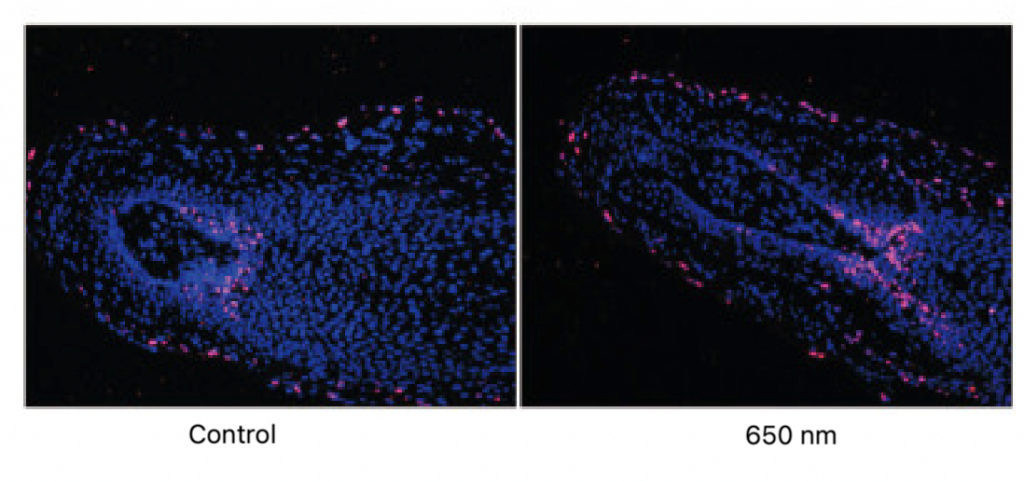
The next 16-week study [3] involved 40 patients suffering from genetic hair loss and hair thinning. 20 people were randomly selected to receive a real LLLT system, and another 20 were given a placebo system. As a result, those who used the real LLLT system experienced an impressive increase in hair growth of more than 43% on average, compared with an increase of more than 5% for those who used the fake system in the placebo group.
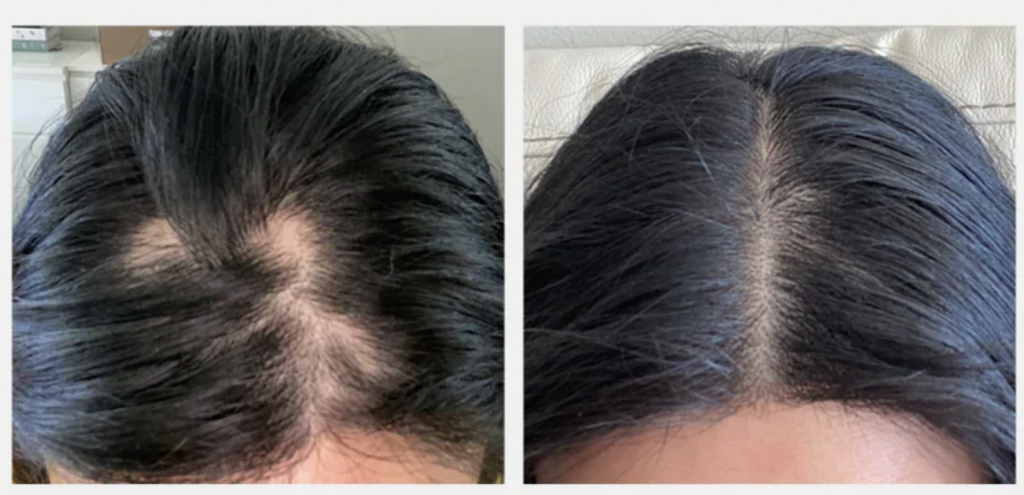
The last study [4] included 40 patients with androgenetic alopecia. They were treated with a helmet-type home use LLLT device emitting wavelengths of 630, 650, and 660 nm, or a dummy device for 18 minutes a day. The study lasted 24 weeks. As a result of the treatment, the LLLT group showed significantly greater hair density than the simulated device group.
Before and after results
If you are concerned about hair loss, laser caps for hair loss treatment can be an option to consider.
Below, we will provide before and after results for laser caps for hair loss treatment, so you can see for yourself the potential benefits of this option.
As you can see, there is a significant difference in results. After treatment with laser caps, there is a noticeable improvement in the thickness and fullness of the hair.
Benefits of trying a laser cap for hair growth
If you’re considering trying a laser cap for hair growth, there are several potential benefits to know.
- You may see results within a few weeks
Some people may see an improvement in their hair growth within a few weeks of starting treatment. But for a more visible result, you will need from 6 months to a year.
- Laser therapy is a non-invasive, pain-free treatment option
It means there’s no need for surgery, injections, or other invasive procedures.
- Laser caps are convenient and easy to use
You can use them at home, and they don’t require a lot of time (about 30 minutes a day) or effort.
- Laser caps are relatively affordable
Compared to other hair loss treatments, such as surgery or medication, laser caps are a relatively affordable option.
- Laser caps are available without a prescription
You can purchase them online or from some retailers without needing to see a doctor or dermatologist first.
- There is no downtime associated with laser therapy
Just put a device on your head and do what you want. You can even go out in public and no one will know what’s going on under your cap. Also, you can resume your normal activities immediately after treatment.
- Laser therapy is a long-term solution
Unlike other treatments, such as medication, laser therapy is not a temporary solution. It can provide long-lasting results.

How often should you use laser devices to treat hair loss?
Hair loss can be a difficult condition to treat, and there is no one-size-fits-all approach. Laser devices are often used as a treatment plan, but the frequency of use can vary depending on the individual. Some people may need to use laser devices daily, while others may only need to use them once or twice per week.
Results can be seen after several months of treatment, but most people will need to continue using the laser cap in order to maintain results.
It is best to follow the recommendations of your hair loss specialist. They will be able to tailor a treatment plan to your specific needs and goals.
Is the hair growth laser cap safe for use?

Laser caps are generally considered safe for use. However, as with any medical device, there are potential risks and side effects associated with their use. Make sure to consult with a qualified healthcare provider prior to using a laser cap to ensure that it is the right treatment option for you.
Some of the potential risks and side effects associated with laser caps include:
- Skin irritation
This is the most common side effect associated with laser cap use. Some people may experience redness, swelling, or itching at the site of treatment. These symptoms typically resolve on their own within a few days.
- Eye damage
The laser energy used in laser caps can be harmful to the eyes if the direct beams hit them. Do not point the laser diodes at your eyes when using the device, or wear special safety goggles.
- Headache
Some people may experience a headache after using a laser cap. This is usually due to the fact that the laser energy can affect the brain and cause it to become agitated. The headache typically resolves on its own within a few hours.
Summary
Many people experience some amount of hair shedding as they age, but for some, it can be a more significant problem. If you are concerned about hair loss, laser caps may be an option to consider.
Laser caps, also known as photo-therapy caps, are FDA-cleared and clinically proven to be an effective hair loss treatment for both men and women. They use low-level lasers which stimulate hair growth by increasing blood circulation and energy production in the cells.
If you are considering using a laser cap, it is important to consult with a dermatologist, as not everyone is a good candidate for this type of treatment. Additionally, it is essential to be realistic about the results you can expect from therapy. While laser caps can help to improve hair growth in some people, they are not a miracle cure for baldness, and they will not work for everyone.
FAQ
🧢 How do laser caps work?
Laser therapy is work by stimulating the cells in the follicle. The light is absorbed by the cells in the hair, which then converts it into energy that can promote growth
🤔 Are there any side effects associated with laser caps?
Laser caps are generally considered to be safe, however, as with any treatment, there is always the potential for side effects. The most common side effects associated with laser therapy include scalp redness, itching, and tingling.
🔍 How often do I need to have laser cap therapy?
The frequency of treatment will depend on the individual and the severity of their hair loss. However, most people will need to have treatments 3-5 times per week for at least 16 weeks in order to see results.
💸 How much does laser therapy cost?
The cost of laser therapy will vary depending on the person and the number of treatments needed. You can expect to pay $100 per session. However, by purchasing your own device, you will benefit in the long run.
Sources
- Sabrina Mai-Yi Fan, Yu-Pin Cheng, Ming-Yung Lee, Sung-Jan Lin, Hsien-Yi Chiu. Efficacy and Safety of a Low-Level Light Therapy for Androgenetic Alopecia: A 24-Week, Randomized, Double-Blind, Self-Comparison, Sham Device-Controlled Trial. — Dermatol Surg. 2018 Nov;44(11):1411-1420. doi: 10.1097/DSS.0000000000001577.
- Kai Yang, Yulong Tang, Yanyun Ma, Qingmei Liu, Yan Huang, Yuting Zhang, Xiangguang Shi. Hair Growth Promoting Effects of 650 nm Red Light Stimulation on Human Hair Follicles and Study of Its Mechanisms via RNA Sequencing Transcriptome Analysis. — Ann Dermatol. 2021 Dec;33(6):553-561. doi: 10.5021/ad.2021.33.6.553. E-pub 2021 Nov 4.
- Dr. Adam Bodian. The clinical study for the iRestore Laser Hair Growth System.
- Hyojin Kim, Jee Woong Choi, Jun Young Kim, Jung Won Shin, Seok-Jong Lee, Chang-Hun Huh. Low-level light therapy for androgenetic alopecia: a 24-week, randomized, double-blind, sham device-controlled multicenter trial. — Dermatol Surg. 2013 Aug;39(8):1177-83. doi: 10.1111/dsu.12200. Epub 2013 Apr 3.


